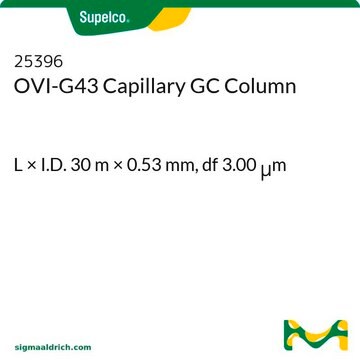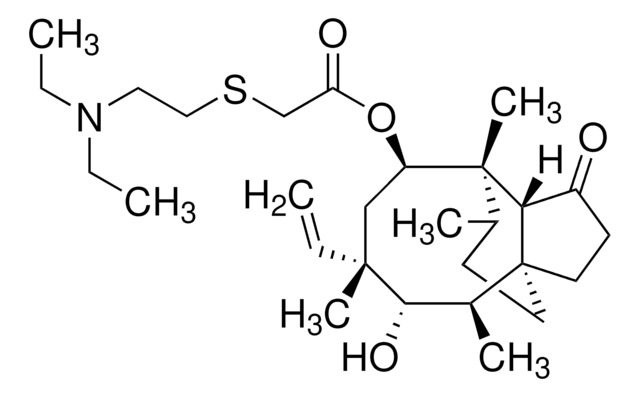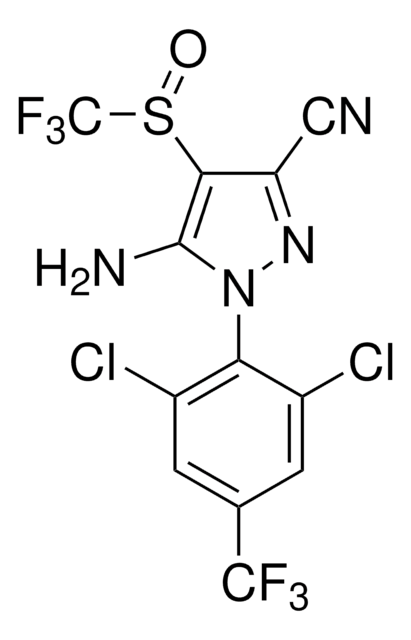About This Item
Recommended Products
grade
analytical standard
Quality Level
description
mixture of isomers
product line
PESTANAL®
shelf life
limited shelf life, expiry date on the label
technique(s)
HPLC: suitable
gas chromatography (GC): suitable
application(s)
agriculture
environmental
format
neat
SMILES string
OC1=C(C2CC(Cc3ccccc23)c4ccc(OCc5ccc(cc5)C(F)(F)F)cc4)C(=O)Oc6ccccc16
InChI
1S/C33H25F3O4/c34-33(35,36)24-13-9-20(10-14-24)19-39-25-15-11-21(12-16-25)23-17-22-5-1-2-6-26(22)28(18-23)30-31(37)27-7-3-4-8-29(27)40-32(30)38/h1-16,23,28,37H,17-19H2
InChI key
KKBGNYHHEIAGOH-UHFFFAOYSA-N
Looking for similar products? Visit Product Comparison Guide
General description
Application
Legal Information
Not finding the right product?
Try our Product Selector Tool.
Signal Word
Danger
Hazard Statements
Precautionary Statements
Hazard Classifications
Acute Tox. 1 Dermal - Acute Tox. 1 Inhalation - Acute Tox. 1 Oral - Aquatic Acute 1 - Aquatic Chronic 1 - Repr. 1B - STOT RE 1
Target Organs
Blood
Storage Class Code
6.1A - Combustible acute toxic Cat. 1 and 2 / very toxic hazardous materials
WGK
WGK 3
Flash Point(F)
73.4 °F
Flash Point(C)
23 °C
Personal Protective Equipment
Choose from one of the most recent versions:
Already Own This Product?
Find documentation for the products that you have recently purchased in the Document Library.
Customers Also Viewed
Our team of scientists has experience in all areas of research including Life Science, Material Science, Chemical Synthesis, Chromatography, Analytical and many others.
Contact Technical Service












